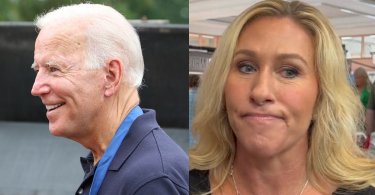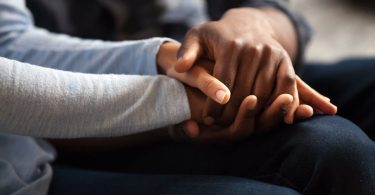The UK Labour Party won an overwhelming majority in national elections July 4, ending 14 years of Conservative Party rule that have been characterized by a deteriorating human rights situation for LGBTQ Britons, particularly transgender people.
But the election of Kier Starmer as new prime minister seems to have queer people only cautiously optimistic at best.
While Starmer’s Labour Party manifesto pledged to improve the queer people’s rights and safety by banning conversion therapy, expanding hate crime laws, and simplifying the gender recognition process for trans people, Starmer has also spent a lot of time playing to the widespread anti-trans hysteria in Britain.
He has said that trans people should not be allowed in single-sex spaces and courted noted transphobic author J.K. Rowling.
That prompted a rebuke from Darren Styles, editor of Attitude Magazine, the UK’s leading LGBTQ lifestyle magazine.
Styles had offered Starmer the opportunity to write an open letter to his magazine’s readers ahead of the election, but in an editorial, he writes that he couldn’t publish it without adding his own commentary.
“But between his copy arriving, on 23rd June, and today’s publication the earth moved beneath our feet. Since then, the Labour leader has said that he’d be willing to meet with JK Rowling to discuss sex and gender, and ‘respects’ her views,” Styles wrote.
“Much of … Sir Keir’s missive is positive and indeed impressive, does offer hope of genuine change and will likely reverse, in part, the trend of decline in LGBTQ+ rights in the U.K. But, in our opinion and in light of events, it is equivocal in parts in that it makes no mention of the trans issues that have subsequently come to light,” he wrote.
PinkNews reports that 56 out LGBTQ people were elected to parliament on July 4, including 46 Labour MPs, about 11 percent of Labour’s total caucus. It’s possible they may be able to push Starmer to make progress on LGBT issues.
But the total number of out LGBTQ MPs fell from a pre-election record of 67, after dozens of out Conservative and Scottish National Party MPs lost their seats.
French Prime Minister Gabriel Attal on July 8, 2024, offered to resign after the second round of the country’s parliamentary elections. (Screen capture via Le Huffington Post YouTube)
French voters rejected the far-right in a dramatic reversal of expectations in the second round of parliamentary elections Sunday, choosing a deeply divided legislature where the left-wing bloc of parties will control the most seats and President Emmanuel Macron’s centrist party holding the second-largest number of seats and the balance of power.
In the wake of the results, openly gay Prime Minister Gabriel Attal from Macron’s Renaissance party announced he would tender his resignation Monday morning, however, Macron rejected his resignation, asking him to stay on for stability while a new government is formed. Attal has been prime minister since January 2024.
Macron called the snap election last month after the far-right National Rally party won the most seats in European Parliament elections, seeking a fresh mandate for his government.
Polls had widely predicted the National Rally would come out on top in the parliamentary election, but a flurry of cooperative deals between the left alliance and the Renaissance party after the first-round vote last weekend led to a consolidation of the anti-NR vote.
While LGBTQ issues had not played a great part in the election campaign, the National Rally had in the past campaigned on restricting access to IVF and surrogacy for same-sex couples, and even banning same-sex marriage.
Macron also turned to campaigning against trans rights, accusing the left-wing bloc of wanting to allow trans people to change their legal gender by simple declaration at a townhall, something he called “ludicrous.” Nevertheless, that is already legal in the France of which he is president.
The man who fired a machine gun at an Pride festival in Norway in 2022, killing two people and wounding 21 others in an Islamic State-inspired attack, was found guilty of terrorism and sentenced to 30 years in prison on July 4.
Zaniar Matapour, a 44-year-old Iranian-born Norwegian citizen, fired 10 rounds with a machine gun and eight with a handgun into a crowd in three locations, including outside the London Pub, a popular Oslo gay bar, on June 25, 2022. Civilians assisted police in detaining Matapour at the scene.
Norway’s Police Security Service told media at the time that Matapour had been known to them since at least 2015 and had grown concerned that he had become radicalized into an unspecified Islamist terrorist network. According to the service’s then-acting Chief Roger Berg, he had a “long history of violence and threats” and known mental health issues.
The Oslo District Court found that Matapour had sworn allegiance to ISIS, the terrorist organization that governed a large part of Iraq and Syria between 2014-2019 and which has claimed responsibility for terrorist attacks across the globe.
Matapour has never denied carrying out the attack, but he pled innocent, claiming that he had been provoked to carry out the attack by an agent of Norway’s intelligence service posing as a high-ranking officer of ISIS.
Matapour will be eligible for parole in 20 years, but he can only be released if he is deemed not to be a danger. Four other people are suspected of having been involved in the attack, but they have not been charged.
The Human Rights Institute has filed a criminal complaint against the country’s minister of culture for inciting hatred against immigrants and Jewish people, as well as LGBTQ people.
The nongovernmental organization filed the complaint on July 4, a day after Culture Minister Martina Šimkovičová gave an interview to the Topky network, in which she claimed that the low birthrate among white people in Europe was due to LGBTQ people.
“We heterosexuals are creating the future, because we make babies. Europe is dying out, babies are not being born because of the excessive number of LGBTQ+ [people]. And the strange thing is [that it’s happening] with the white race,” Šimkovičová said.
Homophobic hate speech is not a crime in Slovakia, but racist and anti-Semitic hate speech is.
Human Rights Institute Director Peter Weisenbacher drew a connection between Šimkovičová’s statements and the shocking murder of two gay men outside a Bratislava gay bar in 2022.
“It is shocking that it has not even been two years since the terrorist attack on Zámocká, in which two people died, and a member of the government is saying such things. Even the statements of public figures, which cannot be called anything other than spreading hatred, incite homophobia, racism and anti-Semitism,” Weisenbacher said in a statement.
Slovakia’s government has long been hostile to LGBTQ rights, including under current left-leaning populist Prime Minister Robert Fico, who was elected last year.
Before joining his government, Šimkovičová had worked as a journalist, until she was fired for promoting anti-migrant content on social media. She then became a darling of far-right media, promoting anti-vax, homophobic, and pro-Russian content on social media and hosting the YouTube show TV Slovan.
Her ministry also announced this week that it would cease all funding of LGBTQ-related content. Šimkovičová had called the policy a “return to normalcy” when the idea was announced in January.
The Indian Supreme Court (Photo by TK Kurikawa via Bigstock)
A year after the India’s Supreme Court dashed the hopes of the country’s queer community by ruling that there is no constitutional right to same-sex marriage, the court is set to reconsider its ruling at a hearing on Wednesday.
In October 2023, the Supreme Court ruled unanimously in Supriyo v. Union of India that same-sex marriage is for parliament to decide, not the courts. The court also ruled 3-2 against ordering the government to introduce civil unions.
However, the court accepted the government’s offer to set up a committee that would investigate other ways to give same-sex couples more rights around inheritance, medical decisions, and other issues, and the court reiterated that anti-LGBTQ discrimination is not allowed under the constitution.
Since the ruling, two of the five justices retired — one who had voted for same-sex civil unions, and one who wrote the majority opinion against it.
One of the petitioners in the same-sex marriage case filed a petition for a review of the decision, noting that the ruling acknowledges that LGBTQ people face unjust discrimination but fails to order any remedy for the injustice.
“The majority ruling is self-contradictory, facially erroneous and deeply unjust. The majority found that queer Indians endure severe discrimination at the hands of the State, declared that discrimination must be prohibited, and then did not take the logical next step of enjoining the discrimination,” Udit Sood said in his petition.
LGBTQ people have made major progress in legal rights in India in recent years, largely through the courts. In 2018, the Supreme Court struck down the colonial-era sodomy law that criminalized LGBTQ people, and the following year, the government passed a law banning discrimination against trans people.
Courts have also asserted that LGBTQ people have the right to autonomy and cohabitation, and that they cannot be subjected to conversion therapy.
If the Supreme Court does rule in favor of same-sex marriage, India would be by far the largest country in the world to legalize it.
Also this week, the Court of Cassation in The Hague, Netherlands, is expected to deliver a long-awaited ruling on same-sex marriage in the Caribbean countries of Aruba and Curaçao on Friday.







